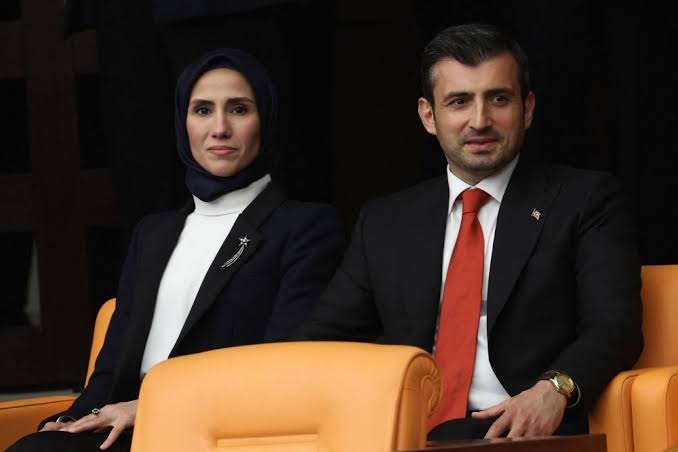Facebook Twitter (X) Instagram Somali Magazine - People's Magazine
A private space company in Turkey founded by Selçuk Bayraktar, chairman of the defense contractor Baykar and son-in-law of President Recep Tayyip Erdoğan, successfully launched its domestically developed satellite aboard SpaceX’s Falcon 9 rocket on Tuesday. The launch, reported by the state-run Anadolu news agency, marks a significant milestone for Turkey’s growing presence in the global space industry.
The satellite, named FGN-100-d1, was launched as part of SpaceX’s Transporter-12 mission, which included 131 payloads featuring American cube satellites, microsatellites, and orbital transfer vehicles. The launch occurred at 10:09 p.m. local time, with SpaceX CEO Elon Musk facilitating the mission. The collaboration between Musk and Turkey continues a trend of cooperation in the aerospace sector, as both have previously engaged in discussions around space and investment projects during meetings in New York and Ankara.
Following the successful launch, the Turkish Space Agency (TUA) confirmed the achievement, describing it as a milestone in small geostationary satellite technology. The agency stated that the satellite would contribute to global communication and positioning capabilities, emphasizing the importance of such innovations for Turkey’s long-term space goals. On social media, TUA shared updates with a celebratory post: “Türkiye’nin Uzay Ekosistemi Büyümeye Devam Ediyor!” which translates to “Turkey’s Space Ecosystem Continues to Grow!”
The FGN-100-d1 satellite, weighing 102 kilograms, is the largest satellite developed by a private Turkish company and was entirely constructed using domestic resources. Equipped with three advanced flight computers, the satellite is designed to test telemetry, positioning, and payload communication capabilities. Approximately 62 minutes after liftoff, the satellite successfully separated from the launch vehicle, entering a Sun-synchronous orbit (SSO) at an altitude of approximately 510 kilometers. The satellite began transmitting telemetry data shortly after reaching orbit, marking the beginning of its mission.
Selçuk Bayraktar, who has been listed among Forbes billionaires, married Sümeyye Erdoğan, the daughter of President Erdoğan, in 2016. Bayraktar has been a prominent figure in Turkey’s defense and aerospace industries, with his company Baykar previously gaining international attention for the Bayraktar TB2 drones used in multiple global conflicts. This latest satellite launch reflects Bayraktar’s ambitions beyond defense into the commercial and scientific aerospace sectors.
The FGN-100-d1 is the first in a planned constellation of 100 satellites under the project name “Uluğ Bey,” inspired by the 15th-century Central Asian astronomer and mathematician. According to Bayraktar, the ultimate goal of this constellation is to create a Turkish global positioning system capable of rivaling established systems like GPS, Galileo, and Russia’s GLONASS, providing strategic capabilities for both civilian and defense applications.
Turkey’s recent space advancements align with broader national ambitions. In December 2024, the Turkish government announced plans for a satellite launch facility in Somalia. Somali President Hassan Sheikh Mohamud confirmed the partnership, which analysts suggest could further Turkey’s influence in the space industry while strengthening diplomatic ties in East Africa.
Bayraktar also revealed plans for the development of a 50-ton launch vehicle capable of carrying satellites up to 1.5 tons into orbit, with Somalia’s planned launch site potentially serving as a hub for future missions. These developments signal Turkey’s intention to expand its global aerospace footprint, reflecting a broader strategy of technological self-sufficiency and national pride.
However, the involvement of Bayraktar’s company in such high-profile projects has drawn criticism, particularly over concerns of favoritism. A recent Presidential Decree expanded the Turkish Space Agency’s powers, enabling it to establish both domestic and international partnerships for satellite and launch vehicle development. Critics argue that these developments mirror the preferential treatment Baykar has previously received in the defense sector, raising questions about market competition and transparency.
Baykar has long faced scrutiny for its close ties to Erdoğan’s administration, with its defense products frequently benefiting from government support and high-profile endorsements during presidential visits abroad. The Bayraktar TB2 drones, for instance, have been exported to over 30 countries, including Ukraine and Azerbaijan, often with state backing during foreign policy engagements.
While some view Bayraktar’s growing influence as a testament to Turkey’s rising technological capabilities, others warn of the risks posed by intertwining family connections with national projects. Nonetheless, the successful launch of the FGN-100-d1 satellite represents a significant technological achievement for Turkey, highlighting its ambitions to become a key player in the global space race.

